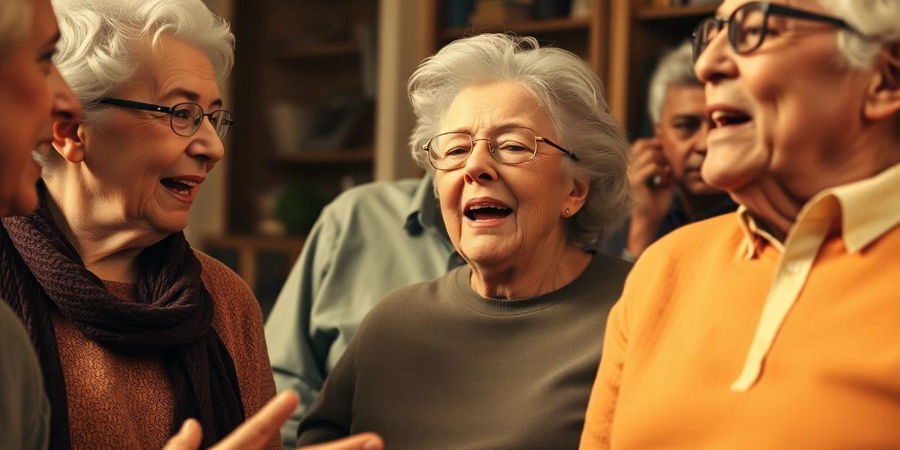


There are multiple benefits of singing for seniors with dementia. We often hear that listening to music helps those with Alzheimer’s or other dementia, but singing is often overlooked.
People love to sing a good song. It might be in the shower, while ironing clothes, or during a drive to work. It’s not essential if you consider yourself a singer or not, it’s just a natural and enjoyable part of life and is another form of nonverbal expression.
Everyone can be taught to sing; you don’t necessarily need to have a great voice, just a desire to make a joyful noise. Singing is an activity that is healthy, fun and affords a great many benefits to the body and mind.
Singing helps seniors to relax and feel better. It allows them to express deep emotion and releases them from stress. It often has a way of lifting their spirits in the midst of whatever challenges they might be facing.
Therefore, singing and listening to music are considered very beneficial forms of activities for seniors with Alzheimer’s and other types of dementia.

Singing helps seniors to relax and feel better. It allows them to express deep emotion and releases them from stress. It often has a way of lifting their spirits in the midst of whatever challenges they might be facing.
Therefore, singing and listening to music are considered very beneficial forms of activities for seniors with Alzheimer’s and other types of dementia.

Music helps seniors with dementia in multiple ways. Researchers say that music assists their behavioral and other emotional conditions.
Although singing and music therapy cannot cure Alzheimer’s or other dementia, it can help reduce negative symptoms associated with the disease and help to reduce stress.
Doctors believe that singing is an excellent aerobic exercise for the lungs, abdominal muscles, and blood circulation.
Singing with or without music is also used in therapy for treating seniors with dementia, and other adults who have suffered emotional, physical, and psychological trauma and illnesses.
For example, music and singing can aid the treatment of stroke victims and those who have speech impairments. Singing is considered beneficial as it helps articulation, rhythm, and breathing.
Singing also benefits seniors with dementia when they are in group settings. They can sing with others while in assisted living facilities, at home with family members, or even with a community choir. Singing makes you happy, and it’s just fun!
Many seniors with dementia and their family members see singing as a glimpse into their past and something to look forward to in the future.
It is a way of forging good friendships and giving them a sense of belonging, which is bound to have a ripple effect as far as their health is concerned.
Singing songs from their childhood may well evoke happy memories of youth and special occasions, which helps them feel better within themselves.
Other studies have shown that singing in the elderly improves their breathing, posture, voices and life expectancy.

The healing power of singing and music is well documented. However, researchers also discovered that music and singing also help dementia caregivers, as well.
When you can incorporate singing for seniors with dementia, it’s possible to see the changes that it makes. Wherever seniors may live, singing is a way to channel their joy, and it is a way to better health and healing.